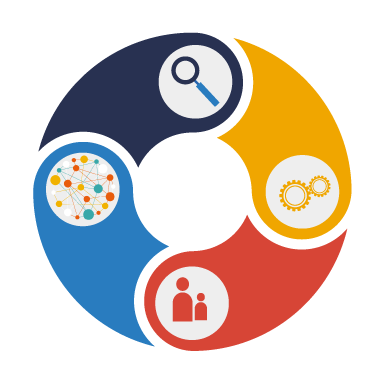RareBoost Seminar Announcement – Prof. Munis Dündar
We are excited to announce that Prof. Munis Dundar will give a seminar titled “Applications of Biotechnology in Medicine” at IBG on June 28, 2024.
Prof. Dundar is a pioneering medical geneticist, having described multiple syndromes and established the Department of Medical Genetics at Erciyes University.
We welcome your participation in Prof. Dundar’s seminar.
Introducing Prof. Munis Dundar
Prof. Munis Dundar graduated from Erciyes University Faculty of Medicine in 1985. He graduated from Glasgow University in 1994 with a PhD degree in molecular genetics. He completed his medical specialization at Osmangazi University Faculty of Medicine, Department of Medical Genetics in 1996. He became Assistant Professor in 1995, Associate Professor in 1997 and was appointed as Professor in 2003.
Dr Munis Dündar has a distinguished scientific career with 279 international publications, 40 national publications and 201 presentations. He has written 6 books and 17 book chapters.
Since 2011, he has been the President of the European Biotechnology Thematic Network Association (EBTNA), which operates in 60 countries around the world. Munis Dündar has been the chairman and member of the organizing committee of more than 50 congresses and symposia. He also conducts European Biotechnology congresses, symposia and international training programs within the scope of EBTNA.
Seminar abstract
Biotechnology is an innovative and interdisciplinary field that affects many sectors such as agriculture, veterinary medicine, medicine and pharmaceuticals. Its history dates back to 3000 BC with the first biotechnological discoveries such as bread yeast and alcohol fermentation. The work of Gregor Mendel in 1866, which laid the foundations of genetic science, and the discovery of the three-dimensional structure of DNA by James Watson and Francis Crick in 1953 are milestones in the development of biotechnology. Modern biotechnology has made great progress with technologies such as genetic engineering, recombinant DNA technology and PCR.
With the Human Genome Project (HGP), the complete sequencing of human DNA has been completed and important steps have been taken in the identification and treatment of genetic diseases. Innovative methods such as gene therapy, stem cell research, 3D organ printing and next generation sequencing have expanded the application areas of biotechnology in medicine. Genome editing technologies such as CRISPR/Cas9 have enabled the editing of specific regions of DNA, leading to a better understanding of the genetic basis of diseases.
Biotechnological drugs have revolutionised the treatment of genetic diseases and made personalised medicine possible. Pharmacogenomics has increased treatment efficacy by enabling drugs to be tailored to individual genetic makeup. Synthetic biology and minimal genome research aim to redesign biological systems with engineering principles and to create new biological structures.

